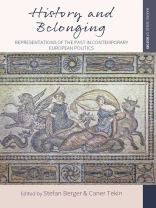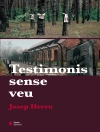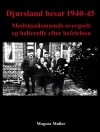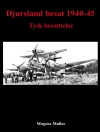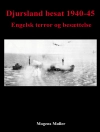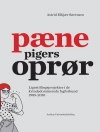In cultural and intellectual terms, one of the EU’s most important objectives in pursuing unification has been to develop a common historical narrative of Europe. Across ten compelling case studies, this volume examines the premises underlying such a project to ask: Could such an uncontested history of Europe ever exist? Combining studies of national politics, supranational institutions, and the fraught EU-Mideast periphery with a particular focus on the twentieth century, the contributors to History and Belonging offer a fascinating survey of the attempt to forge a post-national identity politics.
Table des matières
Introduction: Towards a ‘Europeanised’ European History?
Caner Tekin and Stefan Berger
Chapter 1. Exhibiting Post-national Identity: The House of European History
Daniel Rosenberg
Chapter 2. The European Union and the Historiography of European Integration: Dangerous Liaisons?
Orianne Calligaro
Chapter 3. Representations of National Cultures vis-à-vis the ‘European’ at the European Union National Institutes for Culture
Claudia Schneider
Chapter 4. Europe – a Concept in its Own Right or an Intermediate State between National Traditions and Global Interrelatedness? Representations of Europe in Curricula, Textbooks and Surveys
Falk Pingel
Chapter 5. The Past in English Euroscepticism
Ben Wellings and Chris Gifford
Chapter 6. (Trans)national Memories of the Common Past in the Post-Yugoslav Space
Jelena Dureinović
Chapter 7. Disturbing Memories: Coming to Terms with the Stalinist History of Europe
Claudia Weber
Chapter 8. ‘Glorious, Accursed Europe’ – A Fictional Historian, Transcultural Holocaust Memory and the Quest for a European identity
Judith Müller
Chapter 9. Who Lost Turkey? The Consequences of Writing an Exclusionary European History
Paul T. Levin
Chapter 10. Conceptualisations of Turkey’s Past in the European Parliament
Caner Tekin
Conclusion: European and National Ways of Politicizing European History
Stefan Berger and Caner Tekin
Index
A propos de l’auteur
Caner Tekin (Ph D) is a member of the Centre for Mediterranean Studies at the Ruhr University Bochum. He worked previously at the Georg-Eckert Institute for International Textbook Research in Brunswick as a postdoctoral fellow
